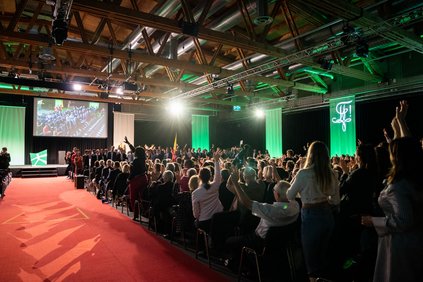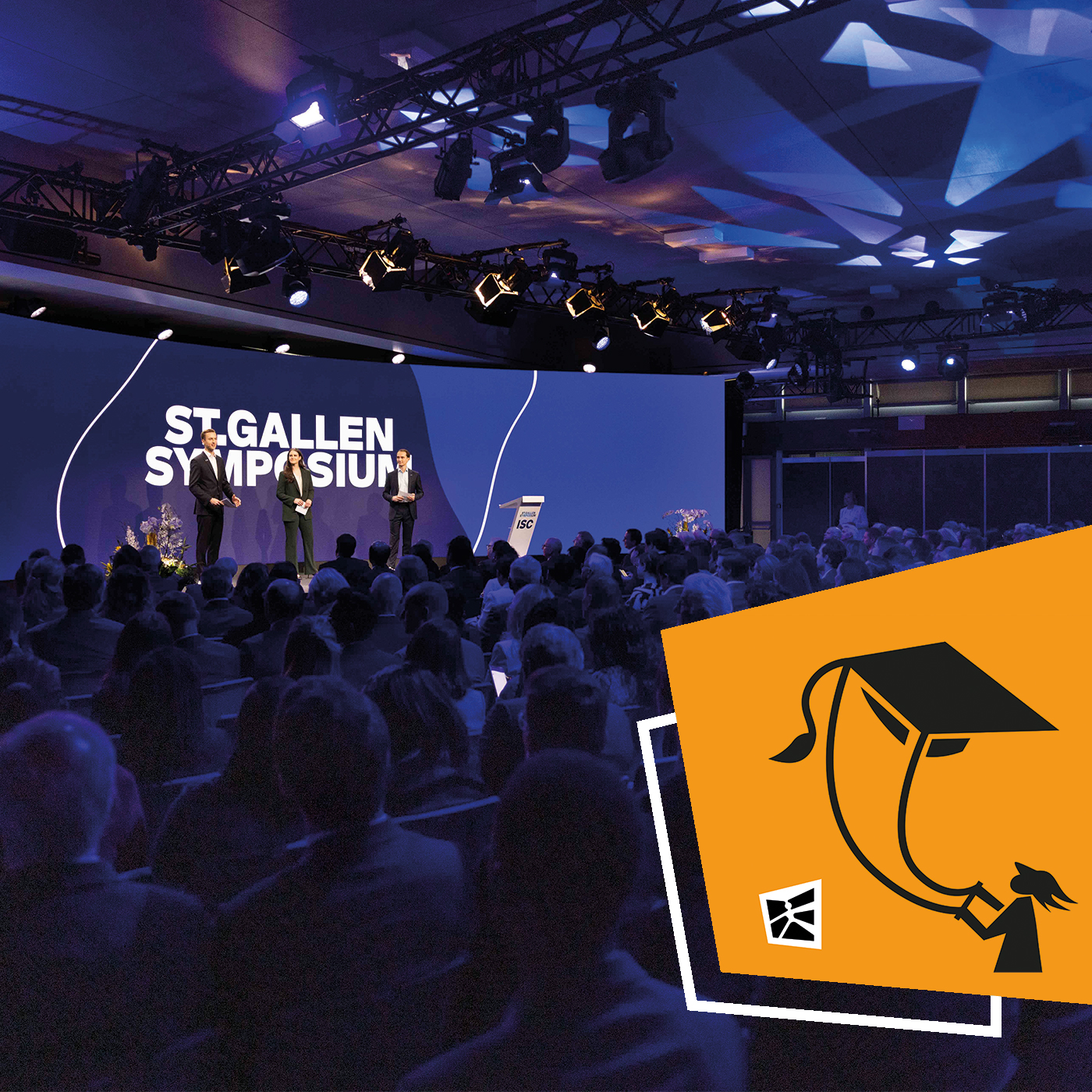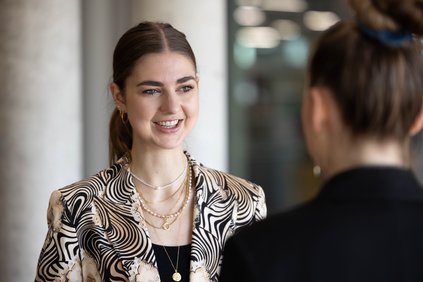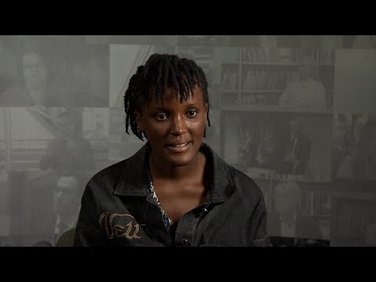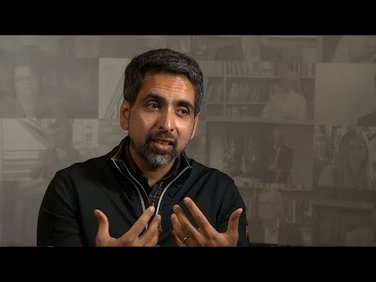Campus - 08.05.2023 - 15:12
Climate crisis and sustainability dominate the 52nd St.Gallen Symposium
Sustainability was one of the dominant topics of the 52nd St.Gallen Symposium. Mamphela Ramphele from South Africa is also calling for change: The Club of Rome co-president, activist and doctor was a guest at the HSG for the third time. She says the symposium is a unique meeting place where ideas and perspectives come together.
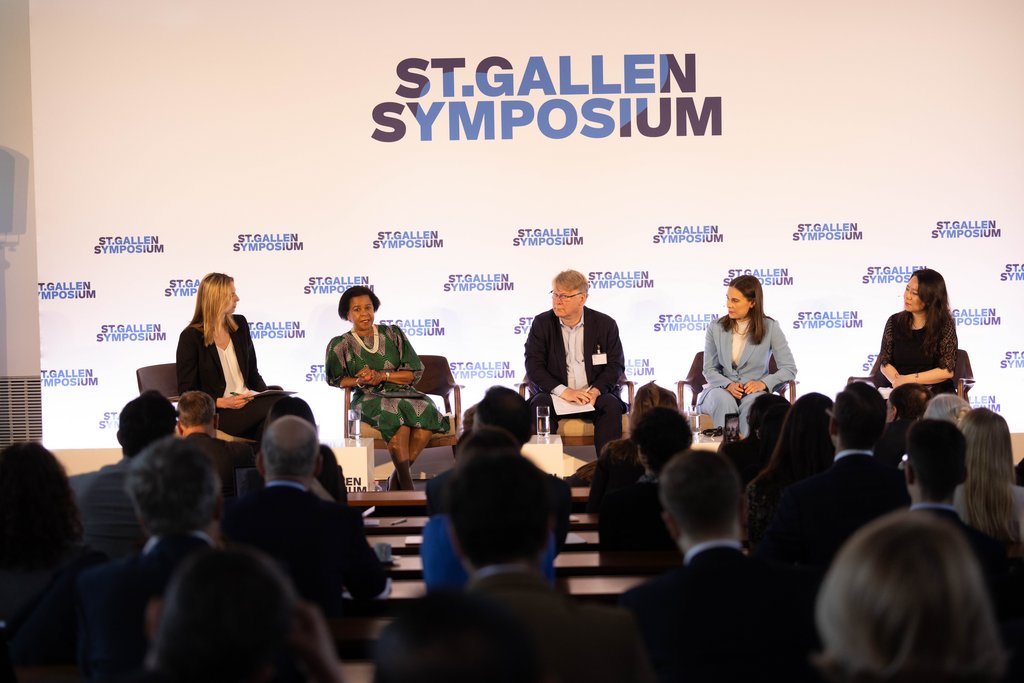
Panel discussion with Club of Rome Co-President Mamphela Ramphele (second from left) at the 52nd St.Gallen Symposium
“I think it's applaudable how the HSG gives young people the freedom to organise the symposium independently. I've never seen such a strong student initiative at any other university,” she said in a conversation during the 52nd St.Gallen Symposium. On the 4 and 5 May 2023, more than 1000 participants exchanged views and ideas at the HSG campus during 70 sessions on the core theme of a “new generational contract”. The 75-year-old South African Ramphele, is a prime example of the diverse professional and personal backgrounds that came together during the two days: She is a medical doctor and businesswoman who chaired the World Bank in the early 2000s. In her home country she was involved in the “Black Consciousness Movement” from the late 1960s onwards, which fought against apartheid. Since 2018, she has been co-president of the “Club of Rome”, which deals with limits to growth.
Last year, the Club of Rome, together with the St.Gallen Symposium, developed seven principles for a new generational contract - based on international research. The principles are: Responsibility, Care, Regeneration, Openness, Participation, Awareness of the Past and Future, and Cooperation. “All of us - whether students or professionals - will take these principles with us as a reference framework within which we will make our decisions in future,” Ramphele said.
Meeting place for ideas and generations
Ramphele sees the St.Gallen Symposium, which she was participating in for the third time in a row, as a meeting point for ideas and perspectives: “The event enables lively interaction and exchange between people of different origins and generations. This enables the participants to gain new insights, which they can use to move on from knowledge to action.” This action is imperative, because: “The current economic and financial systems today contribute towards ever increasing global inequality.” At the same time, the natural foundations of the Earth are being severely threatened.
Leo Legler also called for an exchange between the generations. He is one of three student co-presidents of the Symposium, which is organised by a core team of 26 students and over 500 volunteers. “Talk to five different people from different generations every day. Take the insights from these conversations with you into your everyday life,” said Legler during the opening of the Symposium.
One representative of the young generation in St.Gallen was the 26-year-old Ugandan climate activist Vanessa Nakate. “Climate change is not about the weather or statistics, it’s about people,” she said. In any case, the climate crisis was one of the key issues along with sustainability: High-ranking representatives from global brands such as Hugo Boss, Asics or Omega, as well as the German philosopher Richard David Precht and the German doctor and “Scientists for Future” co-founder Eckart von Hirschhausen discussed this together at the SQUARE. Among the participants were politicians such as Federal Councillor Guy Parmelin, Councillor of States Thierry Burkhardt and German Green Party member Ricarda Lang, young entrepreneurs such as Sarah Maria Nordt from the sustainable label Sanoge, and US education innovator Sal Khan.
Key role of the universities
Mamphele herself took part in a panel discussion entitled “Long-termism, now!”. In it, she called for a shift in thinking away from short-term goals towards strategic, long-term ones. “By long-term I mean thinking beyond one’s own generation and also beyond one’s own community,” she said. Universities and education in general play an important role in this change of perspective. “The HSG trains young people who often work in companies afterwards. And most companies think short-term nowadays, for example, in quarterly key figures. Of course, students cannot come into the professional world as newcomers and immediately change the rules - but they can ask critical questions in the right places to initiate change,” said Mamphele.
More articles from the same category
This could also be of interest to you
Discover our special topics


